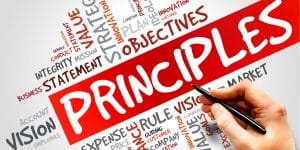In today’s fast-paced and ever-evolving economic landscape, financial literacy books and financial education resources have become indispensable tools for achieving personal and professional success. Whether you’re a novice seeking to understand the basics of money management or an experienced investor aiming to refine your strategies, the right financial literature books can provide invaluable insights and guidance. This comprehensive guide explores the best books on financial knowledge, financial education, financial literacy, and money management, blending informational and commercial intent to help you make informed choices on your financial journey.
The Importance of Financial Literacy and Education
Financial literacy books and financial education resources are the cornerstones of personal financial success. In an era where financial products and services are increasingly complex, understanding how to manage money effectively is crucial. Financial literacy encompasses the ability to make informed and effective decisions regarding the use and management of money. It includes budgeting, saving, investing, and understanding credit and debt.
Financial education goes a step further by providing a deeper understanding of economic principles, market dynamics, and strategic financial planning. Together, they empower individuals to achieve financial independence, secure their futures, and navigate economic uncertainties with confidence.

Top Books on Financial Knowledge
Books on financial knowledge lay the groundwork for understanding the basics of personal finance. They cover essential topics such as budgeting, saving, investing, and debt management, making them perfect for those new to financial planning.
a. “Rich Dad Poor Dad” by Robert T. Kiyosaki
Overview:
“Rich Dad Poor Dad” is a seminal work in the realm of personal finance books. Robert T. Kiyosaki contrasts the financial philosophies of his two “dads” – his biological father (Poor Dad) and the father of his best friend (Rich Dad).
Key Takeaways:
- Assets vs. Liabilities: Kiyosaki emphasizes the importance of understanding the difference between assets (which generate income) and liabilities (which incur expenses).
- Financial Independence: The book advocates for building passive income streams to achieve financial freedom.
- Entrepreneurial Mindset: Encourages readers to think like entrepreneurs and investors rather than solely relying on traditional employment.
Why It’s Recommended:
“Rich Dad Poor Dad” challenges conventional beliefs about money and investing, making it a transformative read for those looking to shift their financial mindset.
Find it on Amazon
b. “The Total Money Makeover” by Dave Ramsey
Overview:
Dave Ramsey’s “The Total Money Makeover” offers a step-by-step plan to take control of your finances, eliminate debt, and build wealth.
Key Takeaways:
- Debt Snowball Method: A strategy for paying off debts from smallest to largest to build momentum.
- Emergency Fund: Importance of saving three to six months’ worth of expenses to cushion against unexpected financial setbacks.
- Investing for the Future: Guidance on investing in retirement accounts to ensure long-term financial security.
Why It’s Recommended:
Ramsey’s practical and actionable advice makes it an excellent resource for those looking to overhaul their financial habits and achieve financial stability.
Find it on Amazon
c. “Your Money or Your Life” by Vicki Robin and Joe Dominguez
Overview:
This book offers a holistic approach to managing finances by helping readers transform their relationship with money.
Key Takeaways:
- Money Tracking: Encourages meticulous tracking of income and expenses to gain a clear picture of financial habits.
- Value Alignment: Aligning spending with personal values to ensure that money is spent on what truly matters.
- Financial Independence: Steps to achieve financial independence through mindful spending and strategic saving.
Why It’s Recommended:
“Your Money or Your Life” provides a comprehensive framework for achieving financial independence and personal fulfillment through conscious financial management.
Find it on Amazon
Essential Books on Financial Education
For those seeking a deeper understanding of financial systems, investment strategies, and economic principles, financial education books are invaluable. These works delve into more complex topics, providing the knowledge needed to navigate the financial world effectively.
a. “The Intelligent Investor” by Benjamin Graham
Overview:
Considered the bible of value investing, Benjamin Graham’s “The Intelligent Investor” offers timeless wisdom on investment strategies.
Key Takeaways:
- Value Investing: Focus on buying undervalued stocks with strong fundamentals.
- Margin of Safety: Investing with a buffer to protect against errors in judgment or market downturns.
- Investor Psychology: Understanding and managing emotions to make rational investment decisions.
Why It’s Recommended:
Graham’s principles have influenced generations of investors, including Warren Buffett, making this book essential for anyone serious about investing.
Find it on Amazon
b. “A Random Walk Down Wall Street” by Burton G. Malkiel
Overview:
Burton G. Malkiel’s book demystifies the stock market, advocating for the efficiency of markets and the benefits of passive investing.
Key Takeaways:
- Efficient Market Hypothesis: Markets are efficient, and it’s challenging to consistently outperform them through active trading.
- Diversification: Importance of diversifying investments to mitigate risk.
- Investment Vehicles: Comprehensive overview of various investment options, including stocks, bonds, and real estate.
Why It’s Recommended:
Malkiel’s balanced approach and evidence-based insights make this book a must-read for understanding the complexities of the stock market and investment strategies.
Find it on Amazon
c. “Thinking, Fast and Slow” by Daniel Kahneman
Overview:
Nobel laureate Daniel Kahneman explores the psychology behind decision-making, offering insights into cognitive biases and behavioral economics.
Key Takeaways:
- Two Systems of Thought: Differentiates between the fast, intuitive system and the slow, deliberate system.
- Cognitive Biases: Identifies common biases that affect financial decisions, such as overconfidence and loss aversion.
- Improving Decision-Making: Strategies to mitigate biases and make more rational financial choices.
Why It’s Recommended:
Understanding the psychological aspects of financial decisions is crucial for effective money management, making this book an invaluable resource for personal and professional finance.
Find it on Amazon
Best Books on Financial Literacy
Financial literacy books are designed to equip individuals with the essential skills needed to manage their finances effectively. These books cover a range of topics, including budgeting, saving, credit management, and basic investing.
a. “The Millionaire Next Door” by Thomas J. Stanley and William D. Danko
Overview:
“The Millionaire Next Door” explores the habits and behaviors of wealthy individuals, dispelling common myths about wealth accumulation.
Key Takeaways:
- Frugality: Many millionaires live below their means, prioritizing savings and investments over lavish spending.
- Financial Planning: Importance of strategic financial planning and disciplined saving.
- Economic Outpatient Care: Examines how financial assistance from parents can impact wealth-building behaviors.
Why It’s Recommended:
The book provides practical insights into the habits that lead to financial success, making it a valuable guide for anyone aiming to build wealth.
Find it on Amazon
b. “I Will Teach You to Be Rich” by Ramit Sethi
Overview:
Ramit Sethi offers a modern and practical approach to personal finance, covering topics like banking, saving, budgeting, investing, and entrepreneurship.
Key Takeaways:
- Automated Finances: Importance of automating savings and investments to ensure consistent financial growth.
- Conscious Spending: Allocating money towards areas that matter while cutting costs on less important expenses.
- Investment Strategies: Simplifying the investment process for long-term wealth accumulation.
Why It’s Recommended:
Sethi’s engaging writing style and actionable advice make complex financial concepts accessible, particularly appealing to younger audiences seeking financial independence.
Find it on Amazon
c. “Financial Freedom” by Grant Sabatier
Overview:
Grant Sabatier’s “Financial Freedom” provides a roadmap to achieving financial independence through smart saving, investing, and income generation strategies.
Key Takeaways:
- Side Hustles: Exploring multiple income streams to accelerate wealth building.
- Investing Early: Leveraging compound interest by starting to invest as early as possible.
- Mindset Shifts: Cultivating a mindset focused on financial growth and independence.
Why It’s Recommended:
“Financial Freedom” is particularly relevant for millennials and Gen Z, offering modern strategies and inspiration for achieving financial independence in today’s economy.
Find it on Amazon
Must-Read Financial Literature Books
Financial literature books offer a broader perspective on economics, financial history, and the intricacies of the financial markets. These books often blend storytelling with financial concepts, providing both education and entertainment.
a. “The Big Short” by Michael Lewis
Overview:
Michael Lewis’s “The Big Short” delves into the events leading up to the 2008 financial crisis, focusing on the individuals who foresaw the collapse of the housing market.
Key Takeaways:
- Understanding Crises: Insights into the factors that contribute to financial crises and market bubbles.
- Risk Assessment: Importance of evaluating risk and recognizing warning signs in financial markets.
- Human Behavior: Examines how greed and poor judgment can lead to systemic failures.
Why It’s Recommended:
The book offers a gripping narrative that highlights the importance of financial literacy in understanding and anticipating market dynamics.
Find it on Amazon
b. “Freakonomics” by Steven D. Levitt and Stephen J. Dubner
Overview:
“Freakonomics” takes an unconventional look at economics, exploring how incentives and hidden factors influence human behavior.
Key Takeaways:
- Economic Principles in Everyday Life: Application of economic theories to a wide range of real-world scenarios.
- Incentive Structures: How incentives shape behavior in unexpected ways.
- Data-Driven Insights: Emphasizes the importance of data analysis in uncovering economic truths.
Why It’s Recommended:
The book encourages readers to think critically about economic principles and their applications, making it a thought-provoking addition to any financial education library.
Find it on Amazon
c. “Liar’s Poker” by Michael Lewis
Overview:
“Liar’s Poker” provides an insider’s perspective on the high-stakes world of investment banking in the 1980s, highlighting the culture and practices within Wall Street firms.
Key Takeaways:
- Corporate Culture: Examination of the aggressive and competitive nature of investment banking.
- Ethics in Finance: Raises questions about ethical behavior and integrity in the financial industry.
- Personal Anecdotes: Blends personal stories with broader financial concepts, making complex topics relatable.
Why It’s Recommended:
“Liar’s Poker” offers a captivating glimpse into the inner workings of Wall Street, providing valuable lessons on the importance of ethics and personal integrity in finance.
Find it on Amazon
Top Finance Books for Every Reader
Finance books cater to a diverse audience, from beginners to seasoned investors. Selecting the right book depends on your current knowledge level and financial goals. Here are some top picks across different categories:
a. For Beginners: “The Simple Path to Wealth” by JL Collins
Overview:
JL Collins’ “The Simple Path to Wealth” simplifies the principles of investing and personal finance, making it accessible for beginners.
Key Takeaways:
- Index Fund Investing: Advocates for low-cost, diversified index funds as a reliable investment strategy.
- Financial Independence: Steps to achieve financial independence through disciplined saving and investing.
- Avoiding Debt: Emphasizes the importance of minimizing debt to build wealth effectively.
Why It’s Recommended:
The book’s straightforward language and practical advice make it an excellent starting point for those new to investing and personal finance.
Find it on Amazon
b. For Advanced Investors: “Common Stocks and Uncommon Profits” by Philip Fisher
Overview:
Philip Fisher’s classic delves into growth investing, providing insights into evaluating a company’s potential and long-term prospects.
Key Takeaways:
- Scuttlebutt Method: Conducting thorough research and gathering information from various sources to assess a company’s viability.
- Growth Potential: Identifying companies with strong growth prospects and innovative capabilities.
- Long-Term Investing: Emphasizes the importance of holding investments for the long term to maximize returns.
Why It’s Recommended:
For experienced investors looking to deepen their understanding of growth investing, Fisher’s book offers timeless strategies and in-depth analysis.
Find it on Amazon
c. For Personal Finance Enthusiasts: “The Wealthy Barber” by David Chilton
Overview:
“The Wealthy Barber” presents personal finance principles through a narrative format, making financial planning engaging and relatable.
Key Takeaways:
- Saving Habits: Importance of regular saving and disciplined financial habits.
- Investment Basics: Introduction to various investment vehicles and strategies.
- Financial Planning: Comprehensive guide to budgeting, saving for retirement, and managing expenses.
Why It’s Recommended:
The book’s conversational tone and practical advice make it an enjoyable and informative read for those passionate about personal finance.
Find it on Amazon
Best Money Management Books
Effective money management books are the cornerstone of financial stability and growth. These books offer strategies and techniques to manage income, expenses, and investments efficiently.
a. “Money: Master the Game” by Tony Robbins
Overview:
Tony Robbins collaborates with financial experts to provide a comprehensive guide to financial planning, investing, and wealth creation.
Key Takeaways:
- Seven Simple Steps: A roadmap to financial freedom, including saving, investing, and creating passive income streams.
- Interviews with Experts: Insights from leading financial minds on investment strategies and wealth management.
- Psychological Aspects: Addresses the emotional and psychological factors influencing financial decisions.
Why It’s Recommended:
Robbins’ ability to distill complex financial concepts into actionable steps makes this book a valuable resource for those seeking to master their finances.
Find it on Amazon
b. “Your Money Blueprint” by T. Harv Eker
Overview:
T. Harv Eker explores the psychological aspects of money management, emphasizing the importance of mindset in achieving financial success.
Key Takeaways:
- Money Blueprint: Understanding and reprogramming subconscious beliefs about money.
- Wealth Principles: Core principles that drive financial success and how to implement them.
- Actionable Strategies: Practical steps to align your financial habits with your wealth goals.
Why It’s Recommended:
Eker’s focus on the intersection of psychology and finance offers a unique perspective on money management, making it essential for those looking to transform their financial mindset.
Find it on Amazon
c. “The Total Money Makeover” by Dave Ramsey
Overview:
As mentioned earlier, Dave Ramsey’s “The Total Money Makeover” provides a structured plan for financial fitness, focusing on debt elimination and disciplined saving.
Key Takeaways:
- Debt Elimination: Strategies for paying off debt quickly and efficiently.
- Savings Plan: Building an emergency fund and saving for future goals.
- Investment Guidance: Steps to invest wisely for long-term financial security.
Why It’s Recommended:
Ramsey’s proven methods and clear, step-by-step instructions make this book a practical guide for achieving financial stability and growth.
Find it on Amazon
Integrating Financial Knowledge into Daily Life
Reading financial literacy books is just the first step. Integrating the knowledge gained into daily life is crucial for achieving financial goals. Here are some strategies to apply the insights from these books effectively:
a. Create a Budget and Stick to It
A budget is the foundation of effective money management. By tracking income and expenses, you can identify areas where you can cut costs and allocate more funds towards savings and investments.
Steps to Create a Budget:
- Assess Your Income: Calculate your total monthly income from all sources.
- List Expenses: Categorize your expenses into fixed (e.g., rent, utilities) and variable (e.g., entertainment, dining out).
- Set Spending Limits: Allocate specific amounts to each category, ensuring that you live within your means.
- Monitor and Adjust: Regularly review your budget and make adjustments as needed to stay on track.
b. Invest Wisely
Investing is a key component of wealth building. Utilize the strategies and principles outlined in books like “The Intelligent Investor” and “A Random Walk Down Wall Street” to make informed investment decisions.
Investment Tips:
- Diversify Your Portfolio: Spread investments across different asset classes to mitigate risk.
- Understand Your Risk Tolerance: Assess how much risk you can comfortably take on without compromising your financial stability.
- Stay Informed: Keep up with market trends and economic indicators to make timely investment decisions.
c. Continuously Educate Yourself
Financial markets and economic conditions are constantly evolving. Stay informed by reading financial literature books regularly, attending seminars, and following reputable financial news sources.
Ways to Continue Learning:
- Read Financial Books: Regularly add new titles to your reading list to expand your knowledge.
- Attend Workshops: Participate in financial workshops and webinars to gain practical insights.
- Follow Financial News: Stay updated with the latest developments in the financial world through trusted news outlets.
The Commercial Side: Where to Find These Books
Investing in financial education is a smart decision, and accessing these resources is easier than ever. Here’s where you can find the books mentioned:
a. Online Retailers
Platforms like Amazon, Barnes & Noble, and Book Depository offer a vast selection of financial books. They often provide user reviews, ratings, and recommendations to help you choose the right book.
Advantages:
- Convenience: Order books from the comfort of your home.
- Wide Selection: Access a global inventory with diverse titles.
- Discounts and Deals: Take advantage of sales, discounts, and bundled offers.
b. Local Bookstores
Supporting local bookstores not only benefits your community but also allows you to discover curated selections and receive personalized recommendations from knowledgeable staff.
Advantages:
- Community Support: Contribute to local businesses and the economy.
- Personalized Service: Get recommendations tailored to your interests.
- Immediate Access: Purchase books without waiting for shipping.
c. E-Books and Audiobooks
For those who prefer digital formats, many financial literature books are available as e-books or audiobooks through services like Kindle, Audible, and Google Books. This flexibility allows you to learn on the go.
Advantages:
- Portability: Access books on multiple devices, making it easy to read or listen anywhere.
- Instant Access: Download books immediately without waiting for delivery.
- Interactive Features: Utilize features like search functions and adjustable fonts for a personalized reading experience.
d. Libraries
Public libraries are an excellent resource for accessing financial education books without the need for purchase. Many libraries also offer digital lending services for e-books and audiobooks.
Advantages:
- Cost-Effective: Access a wide range of books for free.
- Variety: Explore numerous titles across different genres and topics.
- Community Resources: Utilize additional resources like workshops, seminars, and financial counseling services offered by libraries.
Conclusion: Empower Your Financial Future
Financial literacy and education are fundamental to achieving personal and professional success. By investing time in reading and understanding financial literature books, you equip yourself with the knowledge and skills necessary to navigate the complexities of the financial world. Whether you’re seeking to manage your money better, eliminate debt, or build wealth, the right finance books can guide you on your path to financial freedom.
Start your journey today by selecting a book that aligns with your current financial goals and knowledge level. Embrace the insights and strategies shared by financial experts, and take proactive steps to secure a prosperous future. Remember, financial success is not a destination but a continuous journey of learning and growth.
Recommended Reading List
To help you get started, here’s a curated list of recommended books categorized by their focus areas:
Financial Knowledge
- “Rich Dad Poor Dad” by Robert T. Kiyosaki
- “The Total Money Makeover” by Dave Ramsey
- “Your Money or Your Life” by Vicki Robin and Joe Dominguez
Financial Education
- “The Intelligent Investor” by Benjamin Graham
- “A Random Walk Down Wall Street” by Burton G. Malkiel
- “Thinking, Fast and Slow” by Daniel Kahneman
Financial Literacy
- “The Millionaire Next Door” by Thomas J. Stanley and William D. Danko
- “I Will Teach You to Be Rich” by Ramit Sethi
- “Financial Freedom” by Grant Sabatier
Financial Literature
- “The Big Short” by Michael Lewis
- “Freakonomics” by Steven D. Levitt and Stephen J. Dubner
- “Liar’s Poker” by Michael Lewis
Money Management
- “Money: Master the Game” by Tony Robbins
- “Your Money Blueprint” by T. Harv Eker
- “The Total Money Makeover” by Dave Ramsey
Embark on your financial education journey with these exceptional books, and unlock the secrets to financial success and independence. Your future self will thank you for the investment you make today.
Disclaimer: The information provided in this article is for educational purposes only and should not be construed as financial advice. Always consult with a qualified financial advisor before making any financial decisions.
📚 Top Financial Literacy and Education Articles: Unlocking Financial Success
Essential Money Resources
• Financial Management Fundamentals
- Your comprehensive guide to building strong financial foundations
- Practical techniques for smart money management
Career & Wealth Development
- Learn how personal branding impacts your financial success
- Develop leadership skills that boost your career and income
Growth Resources
- Maximize your workplace value and financial opportunities
• Overcoming Imposter Syndrome
- Real stories of financial confidence and success












